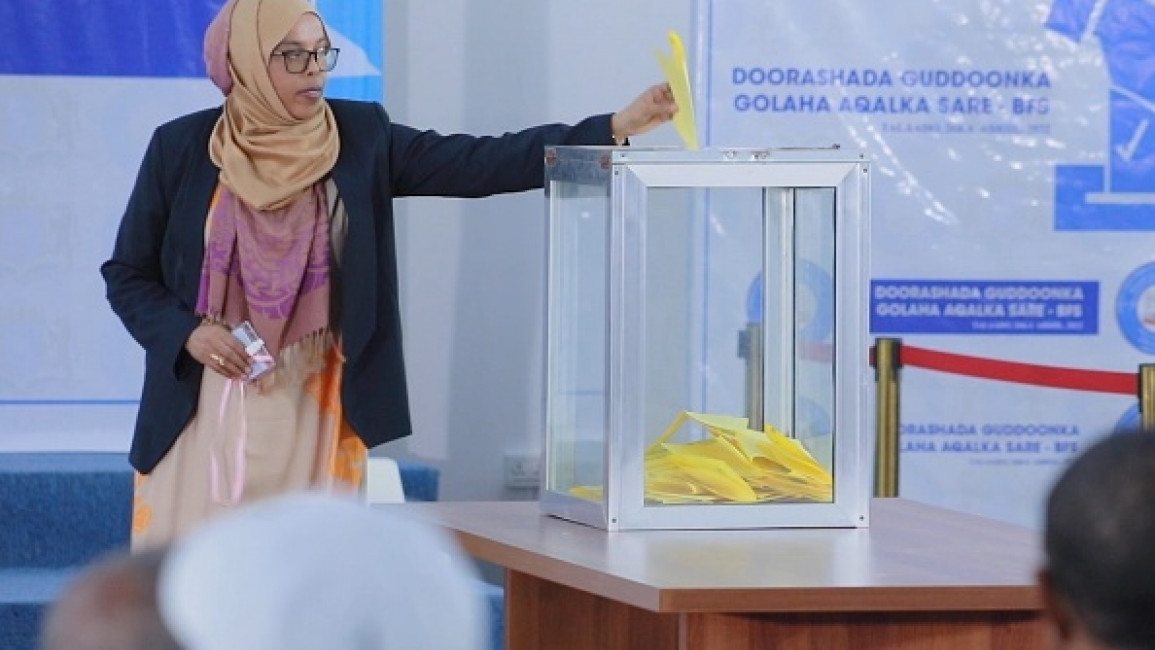Somalia registers record 39 candidates for presidential vote
Somalia has registered a record 39 candidates for the presidential elections on May 15, a parliamentary committee tasked with organising the long-delayed polls in the fragile Horn of Africa nation said Tuesday.
The election is well over a year behind schedule, marred by deadly violence and a power struggle between President Mohamed Abdullahi Mohamed, better known as Farmajo, and Prime Minister Mohamed Hussein Roble.
Lawmakers and senators will choose the next head of state inside Mogadishu's heavily-guarded airport complex in the country battling a decade-long Islamist insurgency.
The candidates include two previous presidents, Hassan Sheikh Mohamud (2012-2017) and Sharif Sheikh Ahmed (2009-2012) as well as former prime minister, Hassan Ali Khaire (2017-2020).
Puntland region president Said Abdullahi Dani and a former foreign minister who also served as deputy minister, Fawzia Yusuf Adan (2012-2014) are also among those who have registered their candidacy.
The winning candidate must secure the backing of two-thirds of the deputies and senators, which means a minimum of 184 votes.
The election will finally end the long political crisis around the vote, postponed multiple times.
The US-China battle for influence in the Horn of Africa
— The New Arab (@The_NewArab) March 29, 2022
✍ @fromadic92 https://t.co/08krd6QDE1
After Farmajo's term ended in February 2021 without a new vote taking place, he attempted to extend his rule by decree, triggering violent street battles in Mogadishu as rival factions clashed.
Following international pressure, he appointed Roble to seek consensus on a way forward. but the process progressed painfully slowly, stoking fears of further instability in the country.
On Tuesday, 30 of Somalia's international partners urged the country's leaders "to conclude this final stage of the electoral process swiftly, peacefully and credibly so that attention can turn to domestic and state-building priorities".
Those who signed the statement included the African Union and the Arab League as well as Western countries like the United States and Britain.
Arab states including Qatar, the United Arab Emirates and Saudi Arabia as well as Russia and Turkey also signed the statement.



